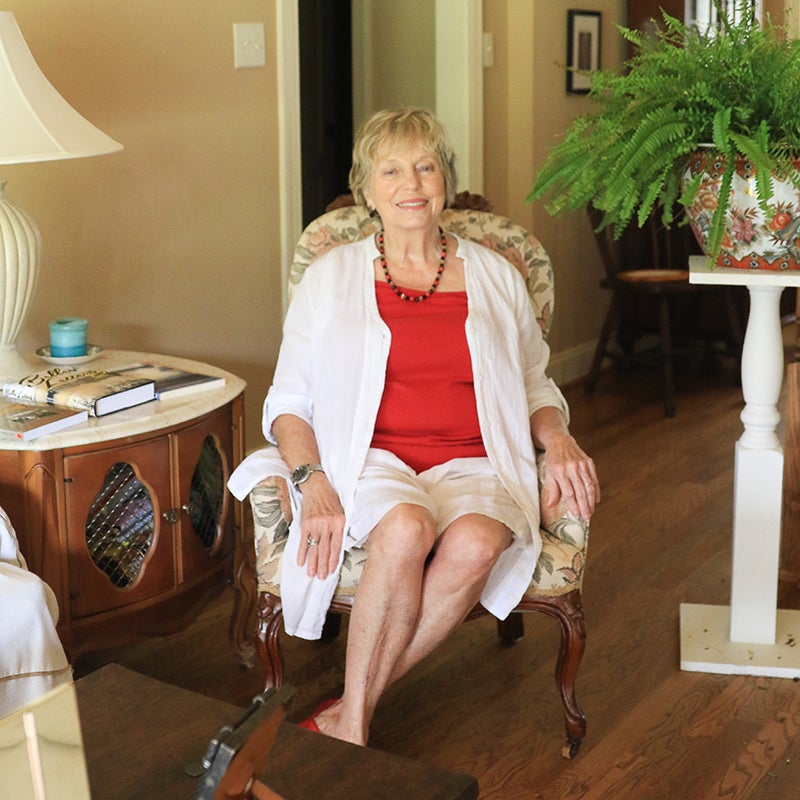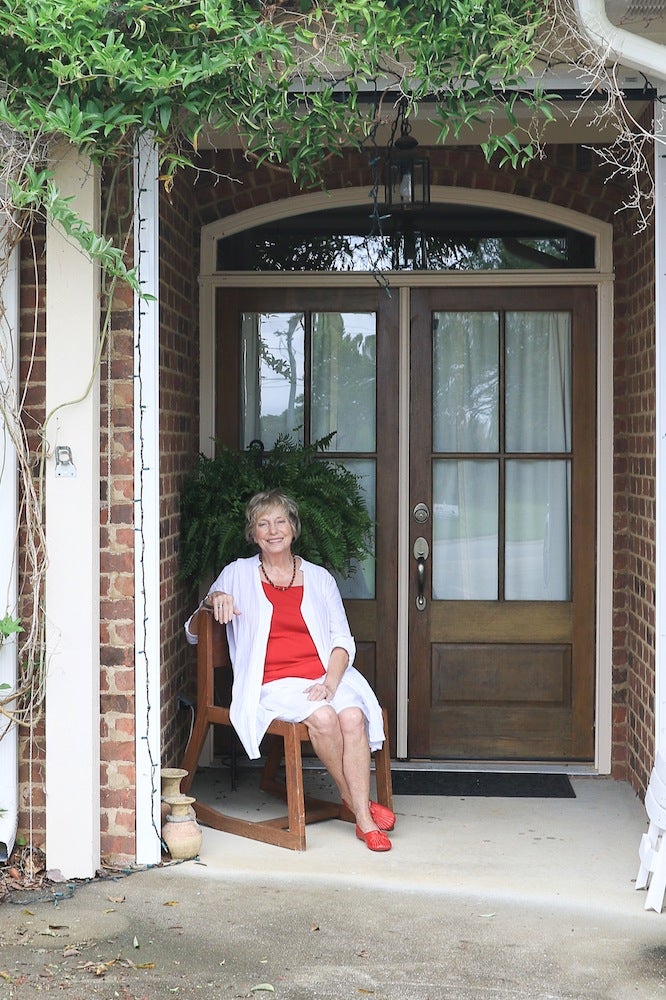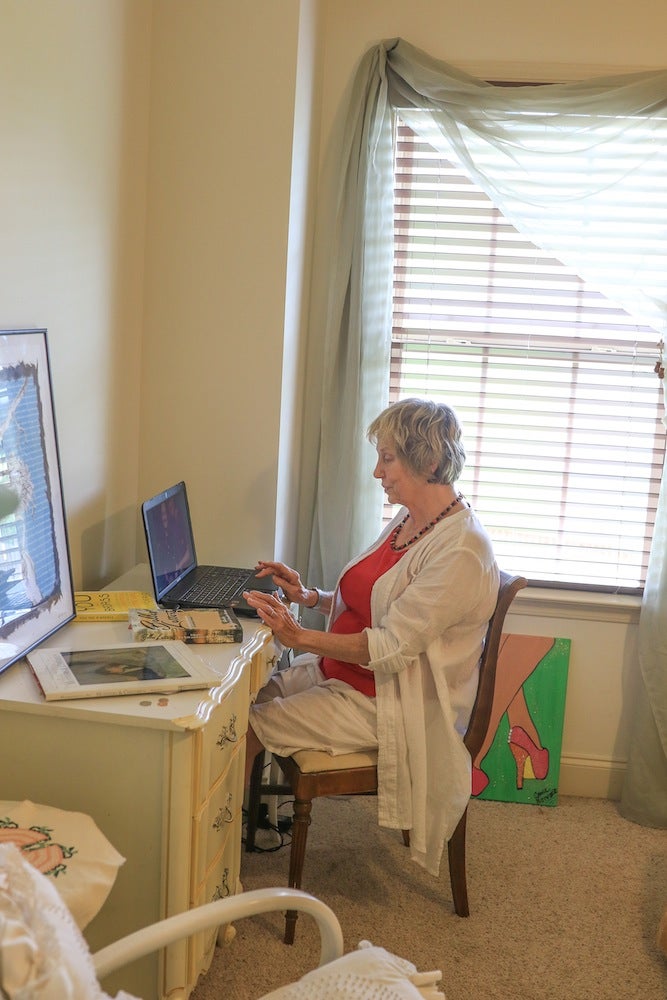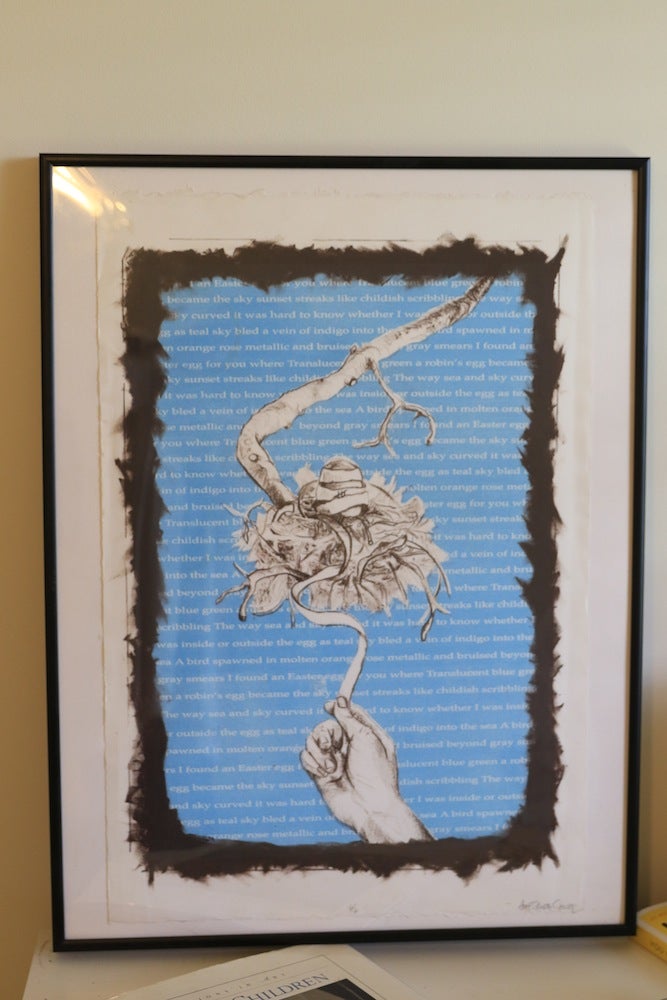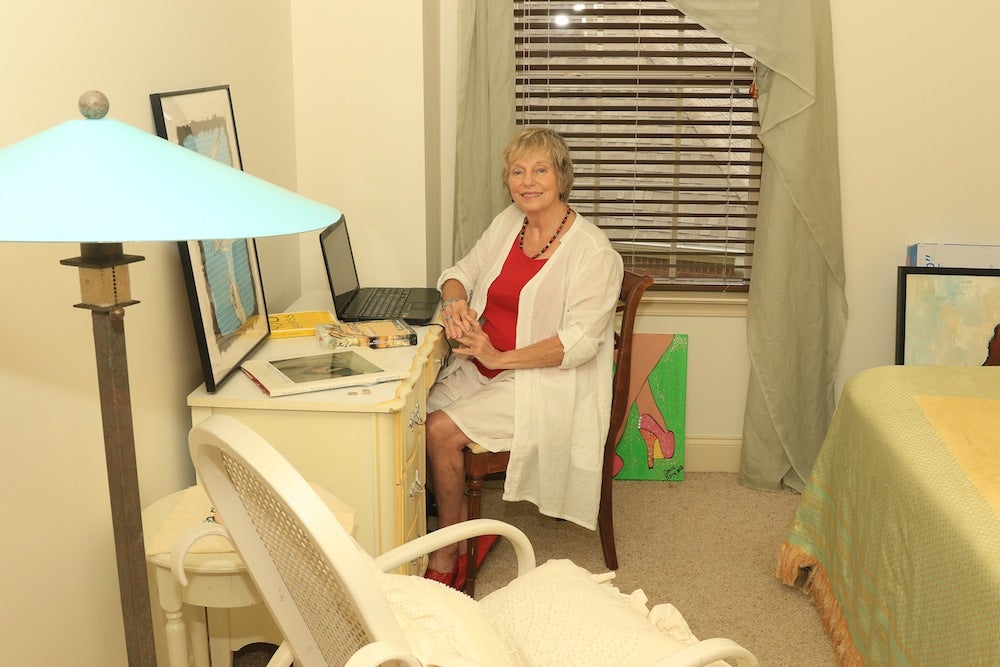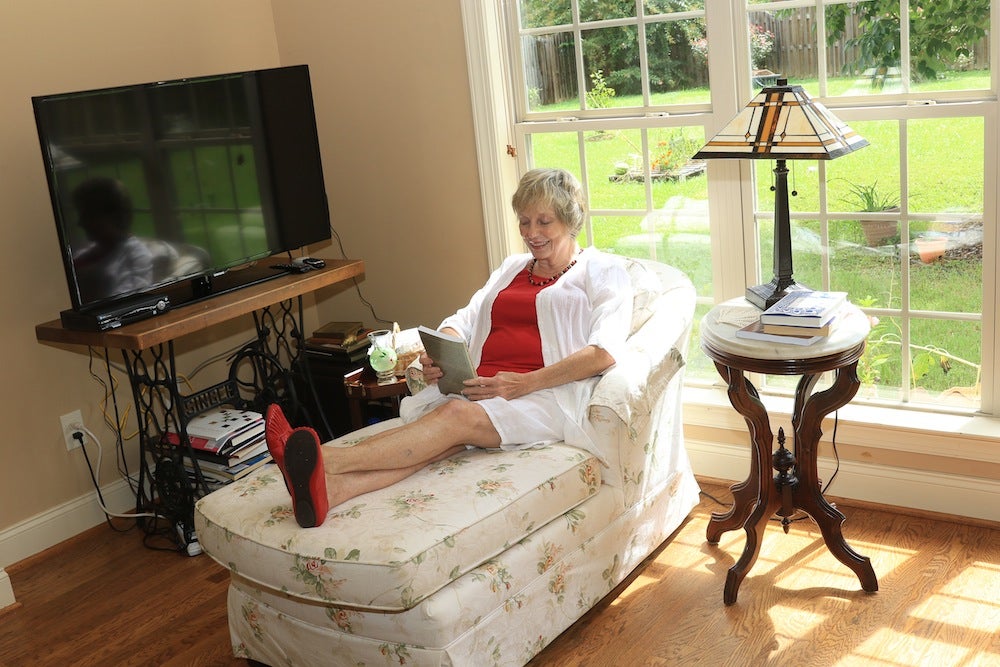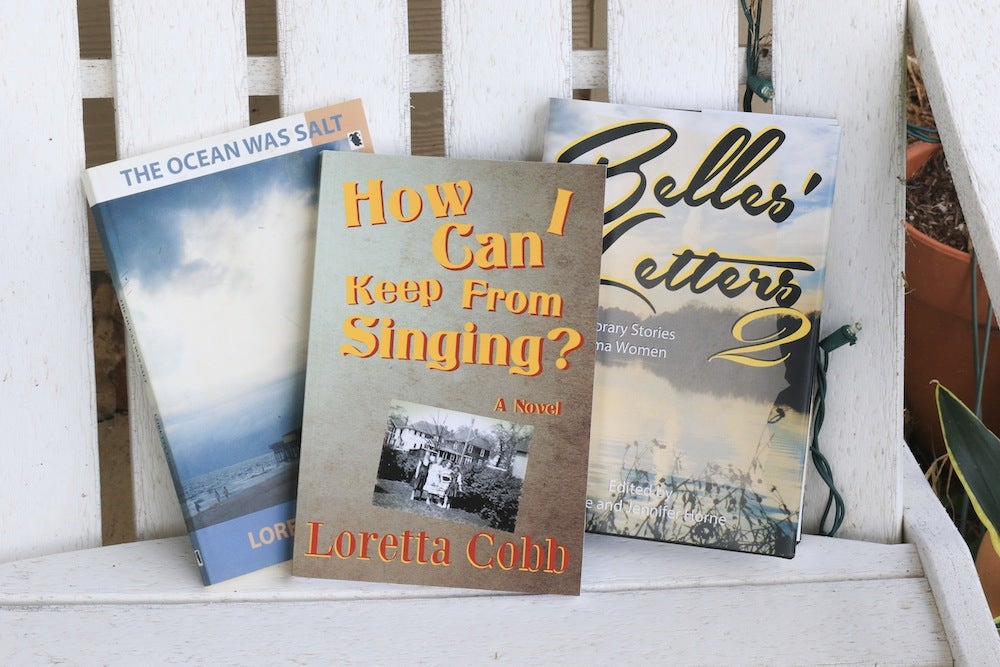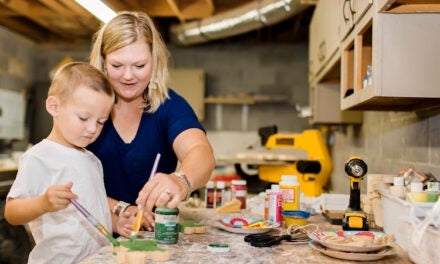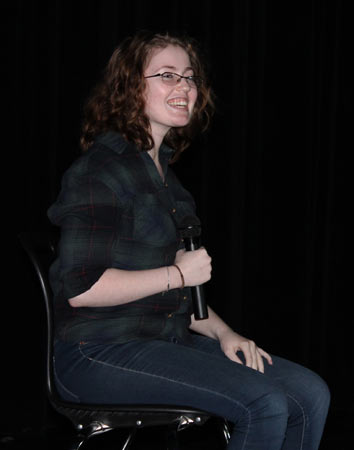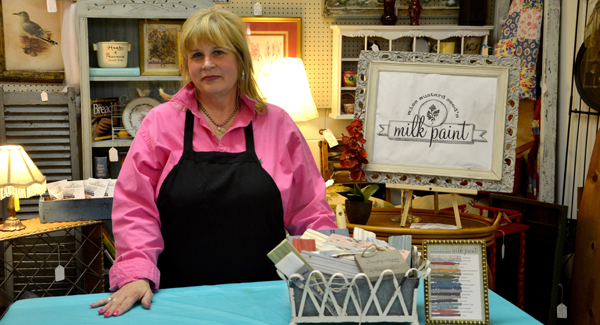ERA OF CHANGE
In her latest novel, Loretta Cobb takes on themes of equality and family during a time of civil transformation.____________________________________
By Anne Riley
Photos by Dawn Harrison
Loretta Cobb’s new novel, How Can I Keep from Singing?, centers around Bonita Byrnes – a girl on the cusp of womanhood during the Civil Rights era in Birmingham. Bonita lives in the city’s working class neighborhoods, and her mother, Ida, runs a boarding house. As Bonita comes of age and her mother makes one poor relationship decision after another, it becomes apparent that this story is layered with significant themes: Racial equality, the personal ramifications of war and the power of unlikely friendships.
Cobb, who attended the University of Montevallo and then later earned her master’s degree from the Bread Loaf School of English at Middlebury College in Vermont, taught English at Helena Junior High School for seven years and is the founder and director of the Harbert Writing Center at Montevallo. Upon her retirement, she was given the designation of Director Emerita for the writing center – a tangible representation of everything she meant to the school, the community and her students.
But Cobb’s love of writing had already bloomed long before the degrees were earned and the honors received. In fact, to find the roots of her delight with words, one must rewind all the way to Cobb’s eighth grade year, when a teacher praised her work in front of the class. Since then, in addition to her latest novel, she has authored a collection of short stories titled The Ocean Was Salt. These stories touch on the Civil Rights Movement as well – although they hardly stop there. Cancer, father-son relationships and Southern belles in New York are just a few of the themes explored in the collection.
Like most writers, Cobb always has a new story in the works. Currently, she’s writing a novel about a man who’s dealing with a terminal illness when an old flame reappears.
When she’s not writing, she’s reading – fiction, nonfiction, whatever tickles her fancy. Lee Smith, whom Cobb describes as “funny, but deep as a river,” is one of her favorite authors and greatest inspirations.
“The Last Girls by Lee Smith is a fairly recent novel that deals with how a woman’s life is known through newspaper clippings, what her family tells about her, her journals and poetry never shown to anyone but discovered after she’s gone,” Cobb said. “That notion intrigues me, though the novel is very funny, too. A group of college friends from a creative writing class go down the Mississippi like Huck Finn, searching for answers.”
Cobb’s first published story appeared in a 1999 anthology of Alabama women titled Belles’ Letters, and this year, she was included in the second edition of that anthology – Belles’ Letters 2.
She might make writing look easy, but that’s just because Cobb knows what her brain needs to produce a great plot, compelling characters and steady pacing. Sometimes, it takes a certain place, activity or snack to get the creative juices flowing, and Cobb has a few tricks up her sleeve in that department – like yoga and dark chocolate.
“I learned, in college, to write propped up in bed with materials all around me,” she said. “I still do that often, or I sit in a chaise in the living room, or work in my studio. When I was writing my first novel, I played Enya’s ‘How Can I Keep from Singing?’ every morning as I worked.”
Cobb’s writing journey has seen highs and lows, and sometimes, she feels discouraged about the work she produces on a given day or the demands of the publishing business. But there’s one encouraging memory that sticks out to her in a particularly significant way – a memory that keeps her focused on what really matters.
“I used to write travel pieces for The Birmingham News,” she said. “Once, my daughter Meredith told me that at her office someone told her, ‘My mama cried when she read that article about Normandy.’ Yes! That’s who you write for, that unknown woman from Pea Ridge who is moved to tears.”
Cobb is the recipient of many awards and recognitions, including the Outstanding Achievement Award from the South Eastern Writing Association, and her literary background is as varied as the stories she tells. As far as the future goes, Cobb plans to keep doing what she does best – writing. She’s also planning a lemonade stand with The Blue Building Antiques and Consignment in Alabaster, complete with a vintage 50s theme and copies of Cobb’s novel available for purchase.
One day, Cobb hopes to pen a novel based on her ancestral research, with the journals of an Anglican priest as inspiration for a story of love, family and trans-Atlantic travel – and when she finally sits down to write it, she’ll probably have a healthy supply of dark chocolate by her side.

